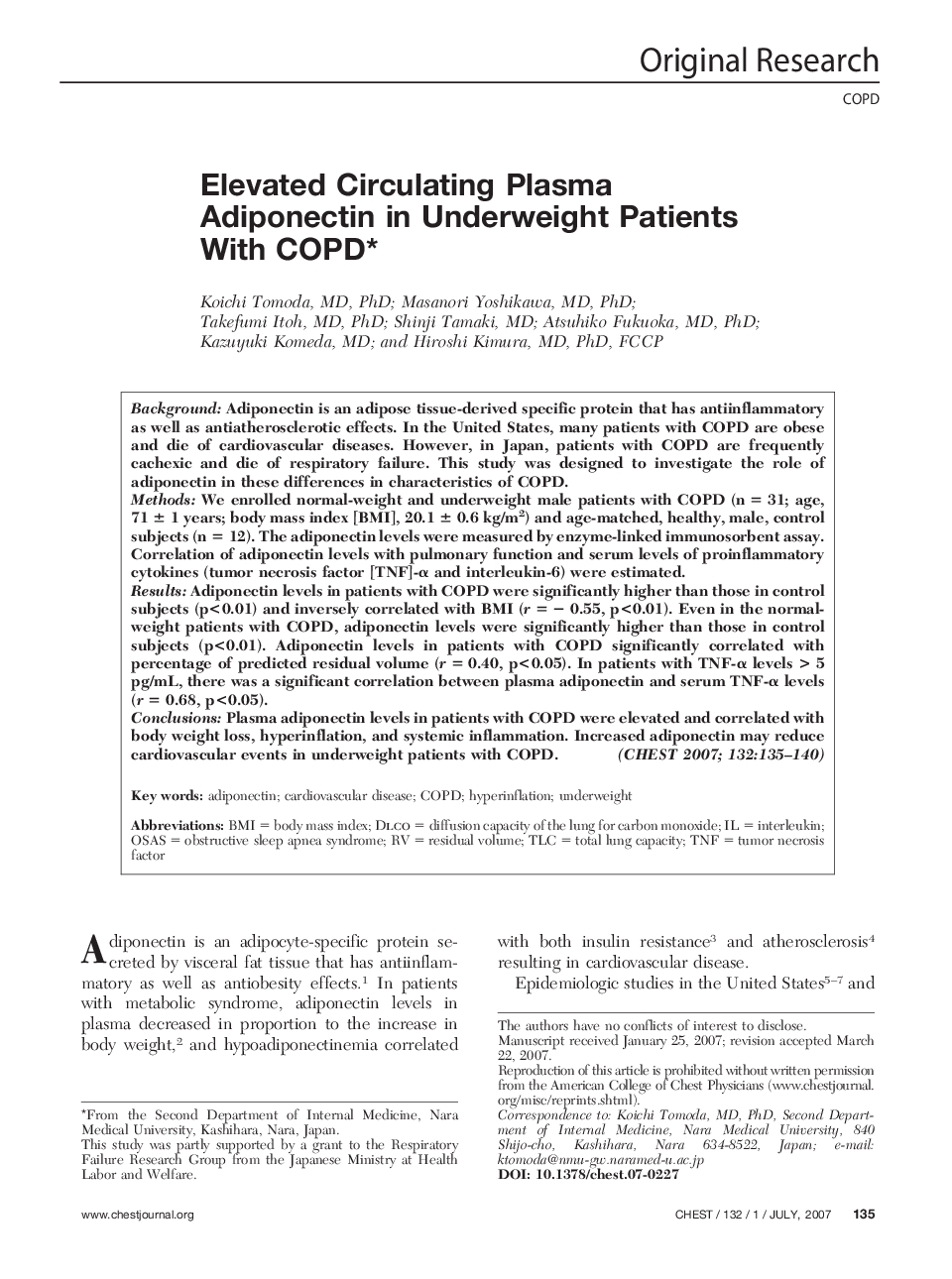| Article ID | Journal | Published Year | Pages | File Type |
|---|---|---|---|---|
| 2906442 | Chest | 2007 | 6 Pages |
Background:Adiponectin is an adipose tissue-derived specific protein that has antiinflammatory as well as antiatherosclerotic effects. In the United States, many patients with COPD are obese and die of cardiovascular diseases. However, in Japan, patients with COPD are frequently cachexic and die of respiratory failure. This study was designed to investigate the role of adiponectin in these differences in characteristics of COPD.Methods:We enrolled normal-weight and underweight male patients with COPD (n = 31; age, 71 ± 1 years; body mass index [BMI], 20.1 ± 0.6 kg/m2) and age-matched, healthy, male, control subjects (n = 12). The adiponectin levels were measured by enzyme-linked immunosorbent assay. Correlation of adiponectin levels with pulmonary function and serum levels of proinflammatory cytokines (tumor necrosis factor [TNF]-α and interleukin-6) were estimated.Results:Adiponectin levels in patients with COPD were significantly higher than those in control subjects (p<0.01) and inversely correlated with BMI (r = − 0.55, p<0.01). Even in the normal-weight patients with COPD, adiponectin levels were significantly higher than those in control subjects (p<0.01). Adiponectin levels in patients with COPD significantly correlated with percentage of predicted residual volume (r = 0.40, p<0.05). In patients with TNF-α levels > 5 pg/mL, there was a significant correlation between plasma adiponectin and serum TNF-α levels (r = 0.68, p<0.05).Conclusions:Plasma adiponectin levels in patients with COPD were elevated and correlated with body weight loss, hyperinflation, and systemic inflammation. Increased adiponectin may reduce cardiovascular events in underweight patients with COPD.
